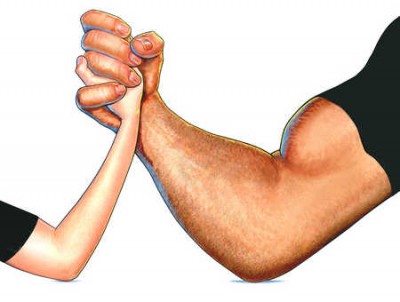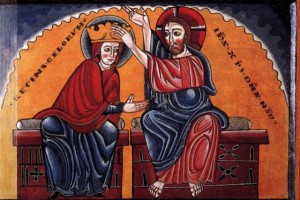In the undergraduate class I am teaching this semester, one of the research assignments students can choose is an analysis of the Barth and Bultmann debate over the nature of Jesus’ resurrection. One student who chose this assignment later changed their mind; this person sent me an email asking if it would be possible change to another assignment because, they asked rhetorically, “Isn’t Karl Barth heretical?” In fact, this person went so far as to say, “I am not sure why you would have us read such heretical authors for this class.” Now, this did not entirely surprise me, unfortunately. There is a much-loved theology instructor at this same university who has been known to say unequivocally, “Karl Barth is evil.” Unfortunately: monkey see, monkey do.
This particular student has no idea about what makes Barth worthy of the term “heretical”–they simply heard it on good authority. But what about the instructor? Is this blanket condemnation warranted? As far as I can see it, there are two general issues that evangelicals have with Barth’s theology, maybe three. On scripture: Barth would laugh at the doctrine of inerrancy, and he has some serious reservations about inspiration. On the destiny of human beings: Barth’s doctrine of election, coupled with his Calvinist tendencies, lead him to what many have called a “hypothetical universalism”. And maybe for those who are uptight about postmodernism: Barth’s understanding of “truth” goes beyond the propositional.
Now, Barth can, at some level, be defended against these charges. I do not intend to stick up for Barth today. My concern is over the deep fear behind the anecdotes I have only briefly outlined above. I do not think these are isolated incidences; in fact, I think that a solid percentage of evangelicals–even some who are fairly well-educated–live in intellectual fear. It’s almost pathological. They cannot even bear to hear the name of someone who teaches something contrary to what they believe. It is the professor who thinks she is in the wrong even exposing a student to a contrary idea. It is the parent who cannot fathom to see their child attend a day of secular education. It is the pastor who counsels a young doubter with, “you’re just thinking too much.”
I am aware the Christian anti-intellectualism has been written on quite a bit hitherto. Ad nauseum, in fact. I think it is worth pointing out, however, that what is at play here is clearly more than an intellectual issue; it is an issue of spiritual weakness. In fact, as I think about those evangelicals who gladly read and discuss Barth and those who make statements like “Barth is evil,” I cannot help but be reminded of the passages in Romans and 1 Corinthians about “the strong” and “the weak”. These passages reveal that the weak are those who struggle mightily to grasp the extent of Jesus’ lordship over all domains. As a result, they lash out in condemnation at those Christians who sit down at a meal over some questionable fare–or in our day: those who sit down with a beer, or hang out with a homosexual, or read the Church Dogmatics!
Paul’s command to the weak: grow up in your faith and stop judging your fellow Christians. And to the strong: do not use your liberty to mock or oppress the weak. Of course, these come in the context of eating meat sacrificed to idols. However, I think that the parallel with, say, reading Karl Barth is clear. And in this case–which is just an example–both commands remain radically relevant. Those of you who think it is inherently dangerous to engage with someone other than John Calvin, Wayne Grudem, Louis Berkhof, John Owen, Jonathan Edwards, John Piper, and Mark Driscoll: you need to grow up–in Christ! Jesus is the Lord of all realms, and he has called you to encounter those realms and rule over them as agents of the kingdom. Plus, you might just learn something: after all, God is bigger than your field of awareness, is he not?
As for the strong, we need to maintain the unity of the Spirit. It is all too common for Christians to see themselves as “enlightened” as opposed to the rest of those in their ecclesiastical or institutional contexts. This breeds contempt for those around them, for the weak. This contempt can quickly become rather consuming. It leads Christians to perpetrate acts of spiritual and intellectual violence against their sisters and brothers. If this is you, you need to grow up too: who are you to pick on those weak in faith? Try to lead them to a deeper realization of the liberty they have because of Jesus’ lordship, but don’t rub their faces in their weakness.
Note: This post is rather ridiculous in that it compares Barth–a wonderful Christian theologian–with “meat sacrificed to idols”. This does not reflect my view of Karl Barth.





19 Comments
Leave your reply.